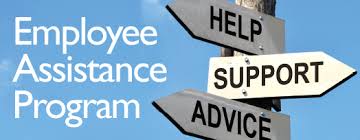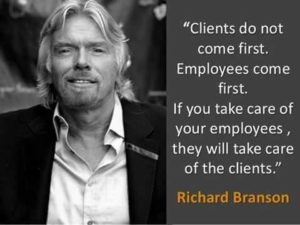When most of us hear the words mental illness or mental health condition we immediately starting thinking of things like sadness, exposure to traumatic events or people with mind problems. Whilst that may be true there is another side to mental illness that is now being recognised and the figures are out of this world.
Mental illness in the workplace has until recently been a sleeping giant, why? Because it is not something that you can see immediately and quickly treat like a normal workplace injury such as a back injury or broken arm.
It doesn’t always appear straight away and it is not something that is easily or readily reported on or able to be tracked.
So how much of an issue is mental health conditions in the workplace in Australia?
- ¹At any given time 1 in 5 employees are likely to be experiencing a mental health condition
- ¹Untreated mental health conditions costs Australian employers $10.9 billion per year
What to look for?
People
Depression and anxiety are the two most common mental health conditions experienced in the workplace. ¹There are on average one million people in Australia living with depression and over two million have anxiety. ¹There are some workplace behaviours to look out for, such as an employee who is:
- finding it difficult to concentrate on tasks
- turning up to work late
- feeling tired and fatigued
- being unusually tearful or emotional
- getting angry easily or frustrated with tasks or people
- finding it difficult to meet reasonable deadlines
- finding it hard to accept constructive and well-delivered feedback
- having difficulty managing multiple tasks or demands
- drinking alcohol to cope
- appearing restless, tense and on edge
- avoiding certain workplace activities such as staff meetings
- becoming overwhelmed or upset easily
- finding it hard to make decisions
- referring to being constantly worried and appearing apprehensive.
Business Performance
As well as the human factor, there are several triggers within your business or organisations performance that can be monitored as well, such as:
- increased sick leave especially around times of change
- increase in ‘mind on task’ workplace injuries due to poor concentration
- reduction in performance or production from an area going through or that has been through recent change
- reduced levels of engagement in workplace surveys
What can you or your organisation do about it?
Reaching out and being supportive is a good way of looking out for your staff. It is not your role to diagnose or provide counselling. It is your role to assist the person to get help if they need it.
Each situation will be different but remember, your role can be critical in assisting that person to get help. ¹Half of all those experiencing depression and anxiety do not seek help, even though effective treatments are available. The workplace can play an important role in whether someone seeks help or not.
Employee Assistance Programs (EAP)
As well being a supportive employer there are several professional organisations that specialise in Employee Assistance Programs (EAP) that can be engaged to further help your employee’s well-being.
These organisations will normally offer initial telephone consultations for assessment purposes and then refer the employee an appropriate specialist for face-to-face sessions.
Assistance is normally extended the employees immediately family and can be for a range of matters both work and not work related such as:
- Mental health conditions
- Financial hardship
- Substance abuse and addictions such as gambling, alcohol, or drugs
- Marital issues
- Work related issues such as stress management, managing workloads, dealing with difficult staff or co-workers
- Grief counselling
Support Agencies
In Australia there are several support agencies that provide a range of on-line and face-to-face tools to assist small and medium businesses deal with mental health conditions in the workplace. Below is a list of a few that can assist:
- Beyond Blue
- Mental Health First Aid
- OzHelp
- SANE Australia Mindful Employer
- Black Dog Institute
Culture
Providing a positive and supportive culture is not to be underestimated, it is important to ensure workers feel valued. Promoting and providing initiatives can help such as:
- The importance of having a healthy work vs life balance
- Partnering with health insurers like BUPA or Medibank to provide programs such as:
- Annual health checks
- Lifestyle education sessions on diet, diabetes, alcohol, exercise, or sugar
- Fitness challenges using wearable fitness trackers such as fitbits, jawbone, or garmin vivo’s
- Guest speakers to talk to employees on matters such as mental health conditions, living a healthy lifestyle and how to deal with stress
So what does the research say and is it all worth it?
The simple answer is YES it is all worth it for both the employee and the employer. It’s simple when you consider the following facts:
- ²research by Pricewaterhouse Cooper has shown that for every $1 you spend creating a mentally healthy workplace will, on average, have a potential return on investment (ROI) of $2.30
- ³research from Instinct and Reason identified that three quarters of Australians employees say a mentally healthy workplace is important when looking for a job
- ¹around 90 per cent of employees think mental health is an important issue for businesses, but only 50 per cent believe their workplace is mentally healthy
Speaking from first hand experience I can assure you that dealing with a mental health condition can be all encompassing and consuming. Employers who give the right assistance and support will inevitably be in a better position to retain their staff and benefit from the investment in them.
Regards
Stuart Rawlins | Healthy Mind Healthy Future
Strategies to improve your Mental Health
¹Beyond Blue, ²Pricewaterhouse Cooper, ³Instinct & Reason








